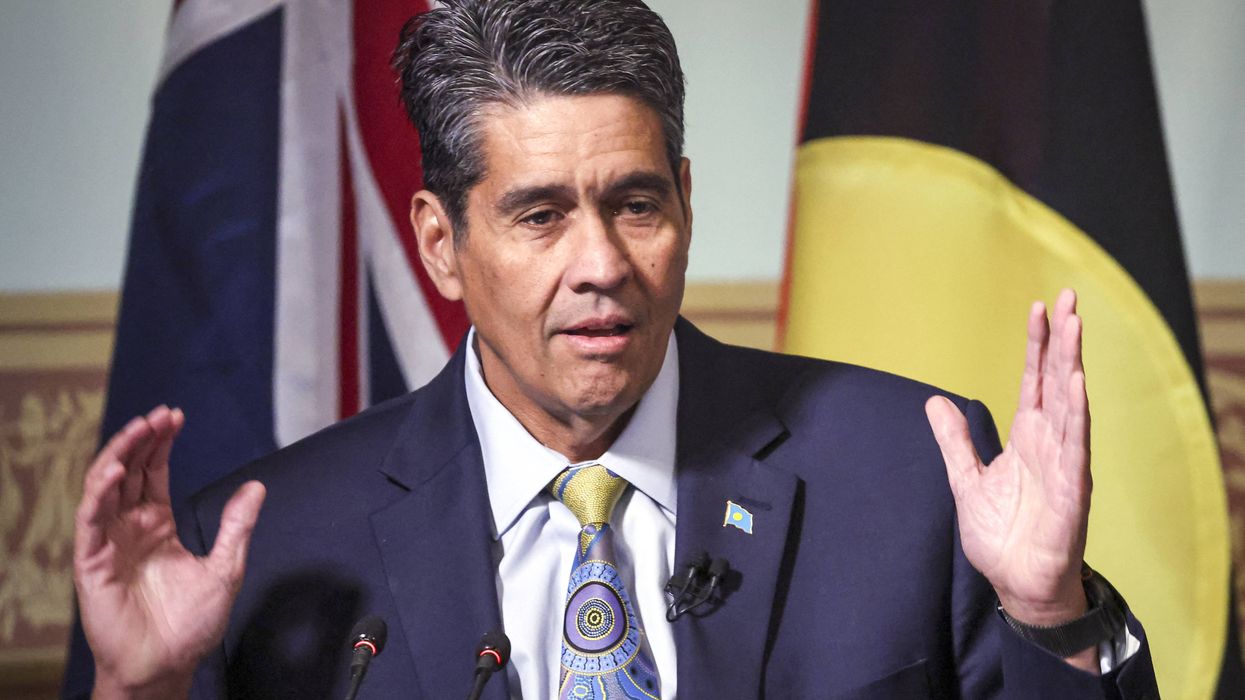February, 06 2019, 11:00pm EDT

Congress Must Pass Landmark Legislation to Stop Pharma Rip-Offs
Statement of Robert Weissman, President, Public Citizen
WASHINGTON
Note: Today, U.S. Rep. Lloyd Doggett (D-Texas) and U.S. Sen. Sherrod Brown (D-Ohio) introduced the Medicare Negotiation and Competitive Licensing Act to allow the government to negotiate prices for Medicare Part D directly with pharmaceutical corporations and authorize generic competition when negotiations fail. Reps. Elijah Cummings (D-Md.) and Peter Welch (D-Vt.) and Sens. Amy Klobuchar (D-Minn.) and Tammy Baldwin (D-Wis.) co-lead the legislation. Also today, Sens. Brown and Kirsten Gillibrand (D-N.Y.) and Rep. Mark Pocan (D-Wis.) introduced the Stop Price Gouging Act, which penalizes corporations that raise pharmaceutical prices beyond the level of inflation.
Senators and representatives introduced two vitally important bills today that deliver pharmaceutical pricing reforms that patients and consumers desperately need and demand. Public Citizen strongly endorses these bills and applauds Reps. Doggett, Cummings, Welch and Pocan, and Sens. Brown, Klobuchar and Gillibrand for their leadership.
The prohibition on Medicare negotiation is utterly irrational. It is the law of the land for one reason only: the corrupting political influence of Big Pharma, including one of the most egregious revolving door arrangements in memory.
Predictably, refusing to leverage bulk purchasing negotiating authority in purchase arrangements with monopolists leads to price gouging and dramatic overspending.
Gargantuan savings can be obtained if Medicare is empowered to negotiate. With a researcher from Carleton University and using 2014 data, we found that if Medicare Part D had been able to pay what the Veterans Health Administration (VHA) did for prescriptions, it would have saved $16 billion - in just one year. The savings almost surely would be larger now than five years ago. Moreover, there is every reason to assume that Medicare Part D, if empowered to negotiate, could obtain savings significantly greater than the VHA is able to, simply because of the scale of Medicare purchases.
The Medicare Negotiation and Competitive Licensing Act would end this mega rip-off. It would grant Medicare the authority to negotiate. If a brand-name manufacturer refused to agree to a reasonable price, the government would authorize generic competitors to enter the market and provide the product affordably, while paying a reasonable royalty to the brand-name company. The licensing approach avoids even the hypothetical problem of important drugs not being available.
Americans are furious about Big Pharma's rip-offs. An astounding 92 percent of Americans favor Medicare negotiation. The Medicare Negotiation and Competitive Licensing Act responds to this overwhelming demand, introducing a dose of common sense and overcoming one of the shameful and corrupt corporate giveaways in American history.
In his State of the Union address, President Donald Trump claimed that the cost of prescription medications is falling. In fact, the Associated Press found that Big Pharma spiked drug prices 96 times for each reduction in price. Big Pharma has baked constant increases into its business model. The Big Pharma corporations raise prices constantly simply because they can, without regard to the economic impact on patients, or even the fact that high charges lead to rationing of lifesaving treatments from insulin to EpiPen.
The Stop Price Gouging Act is the cure for this epidemic of pharmaceutical price spikes. It would remove the incentive for spikes by imposing financial penalties proportionate to companies' unjustified increases.
Public Citizen is a nonprofit consumer advocacy organization that champions the public interest in the halls of power. We defend democracy, resist corporate power and work to ensure that government works for the people - not for big corporations. Founded in 1971, we now have 500,000 members and supporters throughout the country.
(202) 588-1000LATEST NEWS
'Unhinged' Trump Wishes 'Merry Christmas to All, Including the Radical Left Scum'
"Nothing more Christian than to be a hateful wretched fuck on Jesus’ birthday," quipped one critic.
Dec 25, 2025
In a message called typically on-brand by observers, US President Donald Trump wished "Merry Christmas to all"—including his political opponents, whom he described in decidedly unchristlike language.
"Merry Christmas to all, including the Radical Left Scum that is doing everything possible to destroy our Country, but are failing badly," Trump said Christmas Eve on his Truth Social network.
"We no longer have Open Borders, Men in Women’s Sports, Transgender for Everyone, or Weak Law Enforcement," the president added. "What we do have is a Record Stock Market and 401K’s, Lowest Crime numbers in decades, No Inflation, and yesterday, a 4.3 GDP, two points better than expected. Tariffs have given us Trillions of Dollars in Growth and Prosperity, and the strongest National Security we have ever had. We are respected again, perhaps like never before. God Bless America!!!"
While nothing new—Trump has used past Christmas messages to tell people he doesn't like to "go to hell" and "rot in hell"—observers, including some MAGA supporters, were still left shaking their heads.
"Radical Left Scum" 😂🤣😂🤣😂🤣Christmas greetings from a liar, traitor, pedophile, and overall shitstain upon society.
[image or embed]
— Bill Madden (@maddenifico.bsky.social) December 24, 2025 at 9:00 PM
"Nothing more Christian than to be a hateful wretched fuck on Jesus’ birthday!" liberal political commentator Dean Withers said on X.
Another popular X account posted: "A sitting president of the United States using Christmas Day to spew venom at fellow Americans he calls 'Radical Left Scum' isn’t just unpresidential—it’s unhinged, un-Christian, and utterly beneath the office."
"This is the behavior of a bitter, small man who can’t even pretend to unify for one holy day," she added. "Shameful. Disgraceful. Pathetic."
Keep ReadingShow Less
Palau Signs Controversial $7.5 Million Deal to Take 75 Trump Deportees
"What if we spent the $100,000 per person in America setting them up with housing assistance, healthcare, education, etc?" asked one critic.
Dec 25, 2025
Palau said Wednesday that it has agreed to take in up to 75 people deported from the United States during President Donald Trump's purge of unauthorized immigrants in exchange for millions of dollars in financial assistance—a move that has sparked considerable opposition among the Pacific archipelago nation's roughly 18,000 inhabitants.
The office of Palauan President Surangel Whipps Jr. announced a memorandum of understanding with the United States under which the country will receive $7.5 million in assistance in exchange for taking in 75 third-country deportees who cannot be repatriated to their countries of origin.
Earlier this week, US State Department Principal Deputy Spokesperson Tommy Pigott said the people who will be sent to Palau have “no known criminal histories," as is the case with the vast majority of unauthorized immigrants in the United States, who have committed no crime other than the mere misdemeanor of entering the country illegally.
However, Palauans have voiced concerns over US Secretary of State Marco Rubio's remarks during a Cabinet meeting earlier this year in which he said that, “We want to send some of the most despicable human beings—perverts, pedophiles, and child rapists—to your countries as a favor to us."
Whipps said Wednesday that the relocation plan involves “people seeking safety and stability."
“These are not criminals,” the president said during earlier debate on the proposal. “Their only offense was entering the United States illegally and working without proper permits.”
However, Palau's Congress and its influential Council of Chiefs have twice rejected the transfers.
Piggot's statement "highlighted US commitments to partner with Palau on strengthening the country’s healthcare infrastructure, increasing Palau’s capacity to combat transnational crime and drug trafficking, and bolstering Palau’s civil service pension system."
Palau, which was administered by the US from 1947-94 and is now associated with the United States under the 1994 Compact of Free Association, which guaranteed the country nearly $900 million economic aid over 20 years in exchange for exclusive US military access.
The country's foreign policy often tracks closely to that of the US. For example, Palau is sometimes among the handful of usually similarly small nations that vote along with the United States and Israel against United Nations resolutions condemning Israeli crimes or affirming Palestinian rights.
Other developing nations including Eswatini, Rwanda, South Sudan, and Uganda have also agreed to take in US deportees or are considering doing so.
Reactions to the US-Palau agreement drew criticism on social media, where one X user called the deal a "bribe" and another popular Bluesky account asked, "What if we spent the $100,000 per person in America setting them up with housing assistance, healthcare, education, etc?"
Keep ReadingShow Less
Trump 'Choosing From the War Crimes Menu' With 'Quarantine' on Venezuela Oil Exports
"Economic strangulation is warfare and civilians always pay the price," lamented CodePink.
Dec 25, 2025
President Donald Trump has ordered US military forces to further escalate their aggression against Venezuela by enforcing a "quarantine" on the South American nation's oil—by far its main export—in what one peace group called an attempted act of "economic strangulation."
"While military options still exist, the focus is to first use economic pressure by enforcing sanctions to reach the outcome the White House is looking [for]," a US official, who spoke on condition of anonymity, told Reuters.
The move follows the deployment of an armada of US warships and thousands of troops to the region, threats to invade Venezuela, oil tanker seizures off the Venezuelan coast, Trump's authorization of covert CIA action against the socialist government of Venezuelan President Nicolás Maduro, and airstrikes against boats allegedly running drugs in the Caribbean Sea and Pacific Ocean that have killed more than 100 people in what critics say are murders and likely war crimes.
This, atop existing economic sanctions that experts say have killed tens of thousands of Venezuelans since they were first imposed during the first Trump administration in 2017.
"The efforts so far have put tremendous pressure on Maduro, and the belief is that by late January, Venezuela will be facing an economic calamity unless it agrees to make significant concessions to the US," the official told Reuters.
The official's use of the word "quarantine" evoked the 1962 Cuban Missile Crisis, an existential standoff that occurred after the John F. Kennedy administration imposed a naval blockade around Cuba to prevent Soviet nuclear missiles from being deployed on the island, even as the US was surrounding the Soviet Union with nuclear weapons.
"This is an illegal blockade," the women-led peace group CodePink said in response to the Reuters report. "Calling it a 'quarantine' doesn’t change the reality. The US regime is using hunger as a weapon of war to force regime change in Venezuela. Economic strangulation is warfare and civilians always pay the price. The US is a regime of terror."
Critics have also compared Trump's aggression to the George W. Bush administration's buildup to the invasion and occupation of Iraq, initially referred to as Operation Iraqi Liberation (OIL). But unlike Bush, Trump—who derided Bush for not seizing Iraq's petroleum resources as spoils of war—has openly acknowledged his desire to take Venezuela's oil.
"Maybe we will sell it, maybe we will keep it,” he Trump said on Monday. “Maybe we’ll use it in the strategic reserves. We’re keeping the ships also.”
On Wednesday, a panel of United Nations experts said that the US blockade and boat strikes constitute "illegal armed aggression" against Venezuela.
Multiple efforts by US lawmakers—mostly Democrats, but also a handful of anti-war Republicans—to pass a war powers resolution blocking the Trump administration from bombing boats or attacking Venezuela have failed.
The blockade and vessel seizures have paralyzed Venezuela's oil exports. Ports are clogged with full tankers whose operators are fearful of entering international waters. Venezuela-bound tankers have also turned back for fear of seizure. Although Venezuelan military vessels are accompanying tankers, the escorts stop once the ships reach international waters.
According to the New York Times, Venezuela is considering putting armed troops aboard tankers bound for China, which, along with Russia, has pledged its support—but little more—for Caracas.
Keep ReadingShow Less
Most Popular


